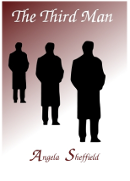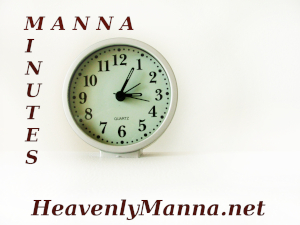Truth really can be stranger than fiction.
First Page - Now launched! All the stories are true, or based on real events. Unlimited reading for $4.99 / month. No downloads. Read on your phone, tablet or computer.
La verdad puede ser más extraña que la ficción.
First Page - ¡Ya está en marcha! Todas las historias son verídicas, o están basadas en hechos reales. Lectura ilimitada por $4.99 / mes. No hay que descargar nada. Lea en su teléfono, tableta u ordenador.
Manna Minutes Podcast: Eye-opening Bible study in less than five minutes! Access all episodes here.
Manna Minutes en español:
Estudio bíblico que nos hace abrir los ojos en menos de cinco minutos! Acceda a todos los episodios aquí.
Manna Minutes Podcast auf Deutsch:
Augenöffnendes Bibelstudium in weniger als fünf Minuten! Alle Episoden finden Sie hier.
Was There A Curse On Helen's Romantic Life?
The Third Man by Angela Sheffield is based on a true story. Read chapter one now!
View Content By Specific Category
¿Qué tiene que ver conmigo? por Teófila Gottfried
Lo que leemos en la Biblia tiene que ver con todos los seres humanos, sean cristianos o judíos, ateos o agnósticos, budistas, musulmanes o adherentes a alguna de las filosofías o nuevas religiones que surgen en el mundo. ¿Por qué? Ver mayor información sobre este interesante libro.
Scripture of The Day - St. John 14:6
Jesus saith unto him, I am the way, the truth, and the life: no man cometh unto the Father, but by me.
Escritura del día - San Juan 14,6
Jesús le dijo: Yo soy el camino, y la verdad, y la vida; nadie viene al Padre, sino por mí.
Bibelstelle des Tages - Johannes 14,6
Jesus spricht zu ihm: Ich bin der Weg und die Wahrheit und das Leben; niemand kommt zum Vater, denn durch mich!
Analyzing the Mental Illness in Medic: Break Through The Bars

Henry Fisher is a character in every sense of the word. He's the character played by the talented Lee J. Cobb in Break Through The Bars (1955), an episode of the series Medic. He's also quite a character to the rest of the characters who have to deal with him.
Henry Fisher is a never-married single guy in his mid-forties who holds a cashier position at a local bank. Apparently that's the only job he has held in his boring life...which has started to get next to him. His sister, Martha Fisher, has what the average person would call an even more boring life, but she doesn't seem to mind. At breakfast, Martha attempts to cheer up her brother who is tired of his life...and who is on the verge of flipping out. At this point, Martha is only concerned with Henry eating his breakfast, and remembering to take his lunch. She doesn't catch that spaced-out look in his eyes or that abnormal expression on his face.
Henry heads for work where his co-workers are waiting for him. He'd better not lose that job. It's the only place where he has any clout in life. He makes it through the morning, and is about to have his lunch when Sam, a co-worker, invites him to "lighten up", and join him for a little fun. Henry refuses, which sparks Sam to remind him of just how boring his life is. Through Sam, we learn that Henry Fisher's lunch menu is only one of two meals. He even practically eats the same lunch everyday! Well, today he decides to do something about it. The problem is that his way of doing something about it quickly attracts attention. The "wrong" kind of attention. "Loony tunes" is the diagnosis of those who are putting up with him.
Henry Fisher's facial expressions are incomprehensible. He won't stop talking, and he's not making sense in his gibber. However, he repeatedly speaks of helping people, while placing himself on a strength pedestal. As Dr. Barth and his team prepare to administer electric shock treatments, Henry tells them, "Give me all the electricity you got. I can take it." He then reminds everyone that he'll help others in need when he gets around to it.
Was Henry what we would call temporarily mentally ill? Some might say so. Or were his thoughts simply racing? That's the polite way of saying that he has flipped. Whatever the case, Mr. Fisher--even in his whatever-you-might-call-it state of mind--knows that he wants prestige. He knows he wants to be the strong one, the hero. That proves his desire to be something he was not.But he could have been who he really wanted to be had he worked on himself...on his own personality and thoughts.
Henry Fisher is handsome, healthy, and has a job. He has a sister who loves him, and co-workers who care about him, which they prove. What was his problem? Low self-esteem? A weak personality? Lack of self-confidence? Perhaps all of those things? What it boils down to is Henry had the power all along to avoid being in the state of mind he was in...especially in the 1950s when people had the decency to make eye contact, and to speak even to strangers. What would Henry do if he lived in these times when people choose to behave like creatures whose life support is in cell phones? Translation: Talk and tap on a cell phone all day, everyday, or you'll die. Henry truly would not have known what to do nowadays.
But one thing we'll say in Henry's favor: Although he did show aggression when he realized he wasn't getting anywhere with anyone with his "I'll help people" speech, he was not evil. His mental illness didn't involve harming others...except for waking them from their sleep.
Finally, in Break Through the Bars, we get a glimpse into mental health care treatment during the 1950s. The other thing we see is that Henry truly has some type of mental problem. However, he's not evil. Unfortunately, nowadays evil is conveniently labeled mental illness to avoid making the evil one pay for his or her wicked acts. Watch Break Through The Bars, and share your comments and reviews with us through the contact form below. Simply click on the movie, and it will begin.
 Based on true events, The Third Man by Angela Sheffield, brings the Bible up close and personal as the characters face real issues of life: Betrayal, deceit, romance, bitterness, anger against God, hopelessness, will power, perplexity, triumph, unforgiveness, mental illness, and the "Alcohol made me do it" excuse. Read chapter one FREE now.
Based on true events, The Third Man by Angela Sheffield, brings the Bible up close and personal as the characters face real issues of life: Betrayal, deceit, romance, bitterness, anger against God, hopelessness, will power, perplexity, triumph, unforgiveness, mental illness, and the "Alcohol made me do it" excuse. Read chapter one FREE now.
Copyright notice: This website and its content is copyright of © Heavenly Manna (HeavenlyManna.net) 2002-2016.
Comments/Comentarios:
Send Comments or a Private Message about One of Our Services / Envíe Comentarios o un Mensaje Privado acerca de nuestros servicios
Once comments reach 10, they close. IF YOU USE PROFANITY, WE WILL REJECT YOUR COMMENT AUTOMATICALLY.
We're a small team, please be patient as we review comments.
©2003 - 2013 Heavenly Manna Ministries
Images: courtesy of Free Digital Photos, openstockphotography.org, FreeFoto.com, Wikimedia Commons. Multiple crosses image - Wikimedia Commons - C.G.P Grey - Animation by Heavenly Manna










